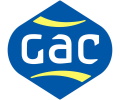

The GAC Group has joined over 150 industry leaders and organisations urging world leaders to take action to align shipping with the Paris Agreement temperature goal.
The Call to Action for Shipping Decarbonisation, launched today, has been developed by a multi-stakeholder taskforce convened by the Getting to Zero Coalition – a partnership between the Global Maritime Forum, the World Economic Forum, and Friends of Ocean Action. Ahead of critical climate negotiations at COP26 in Glasgow this November, it calls governments to work with the industry to deliver the policies and investments to enable the decarbonisation of global supply chains. Signatories include some of the world’s largest players in global trade and several important GAC customers.

For the world to fully decarbonise by 2050, maritime shipping must decarbonise. GAC has joined key industry players to call on world leaders to work together with the private sector to deliver the right enabling environment to achieve this goal.
Responsibility
GAC Group President Bengt Ekstrand says: ““Now is the time for action, both by the private sector and governments around the world, to transform international shipping and work together towards a sustainable future.”
GAC’s support of the Call to Action reflects its focus on taking responsibility for the impact of its operations on the environment. In March this year, the Group joined the Global Maritime Forum’s Getting To Zero Coalition, an alliance of companies from the maritime, energy, infrastructure and finance sectors working to accelerate the decarbonisation of shipping by developing and deploying zero emission vessels by the end of the decade.
Concrete action
The private sector is already taking concrete action to decarbonise shipping, including investment in RD&D and pilot projects, ordering and building carbon neutral vessels, using zero emission shipping services, investing in the production of net-zero emission fuels as well as port and bunkering infrastructure, and assessing and disclosing the climate alignment of shipping related activities.

The GAC Group is working towards a sustainable future.
Governments must now deliver the policies to supercharge the transition and make zero emission shipping the default choice by 2030.
The Call to Action urges world leaders to:
- Commit to decarbonising international shipping by 2050 and deliver a clear and equitable implementation plan to achieve this when adopting the IMO GHG Strategy in 2023.
- Support industrial scale zero emission shipping projects through national action, for instance by setting clear decarbonisation targets for domestic shipping and by providing incentives and support to first movers and broader deployment of zero emissions fuels and vessels.
- Deliver policy measures that will make zero emission shipping the default choice by 2030, including meaningful market-based measures, taking effect by 2025 that can support the commercial deployment of zero emission vessels and fuels in international shipping.
Source: GAC